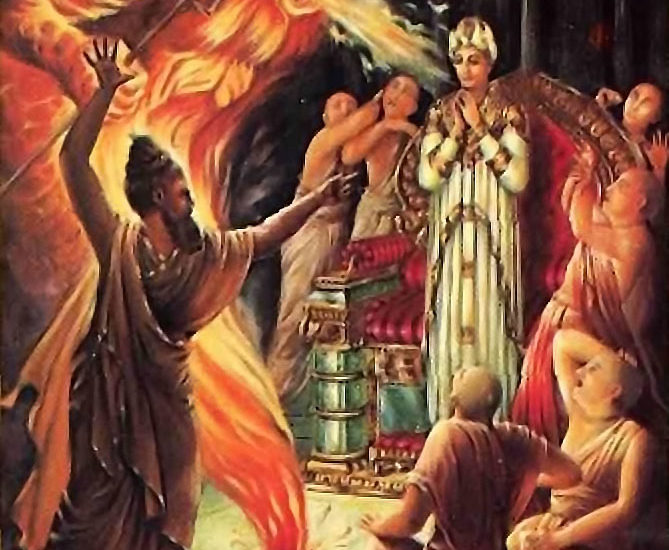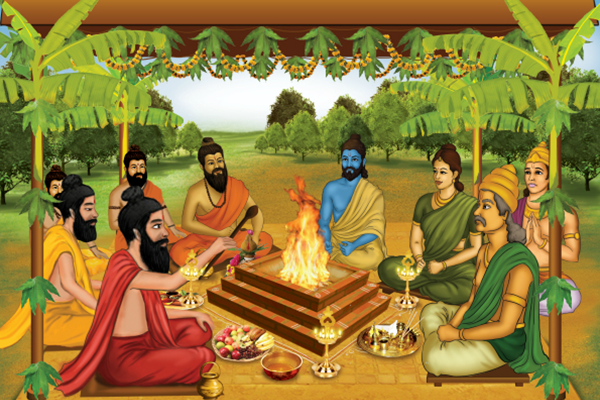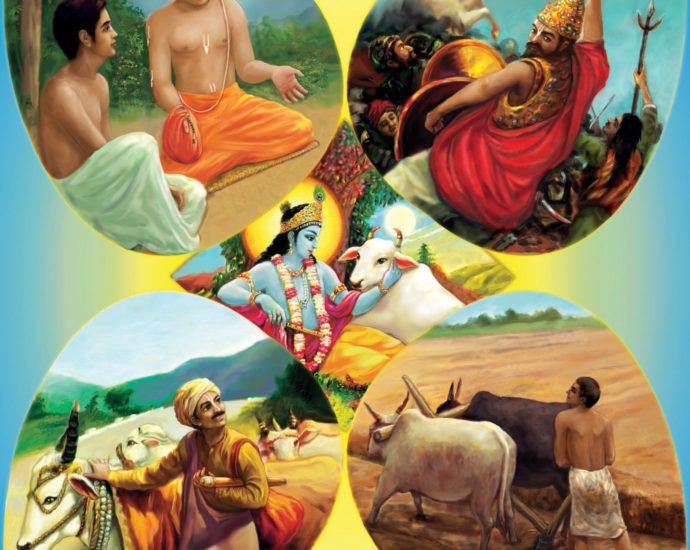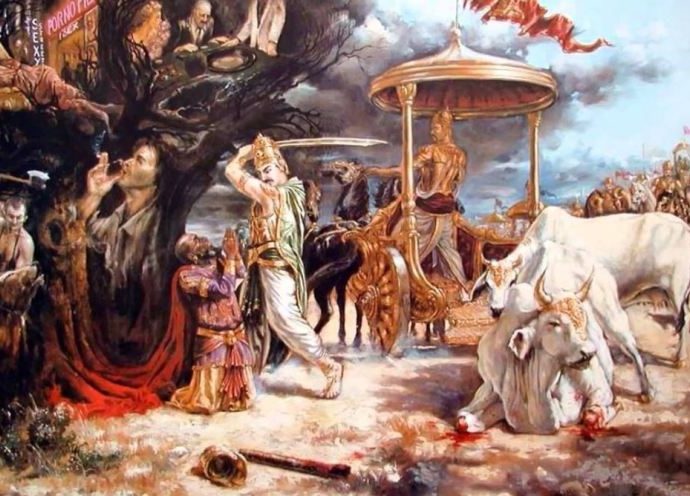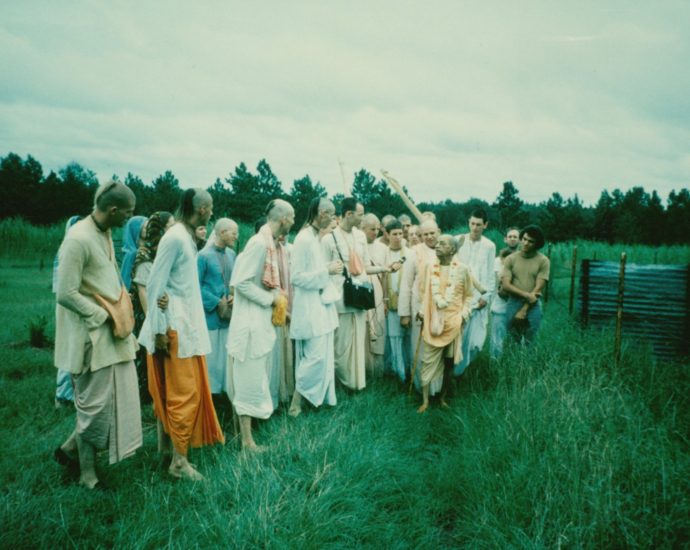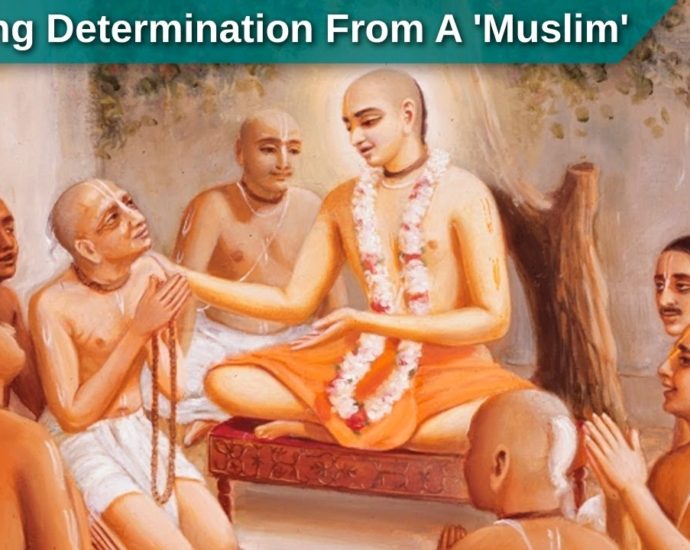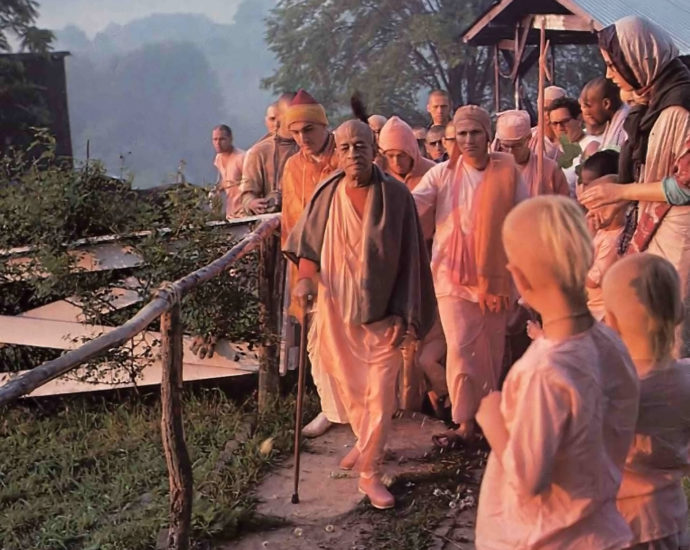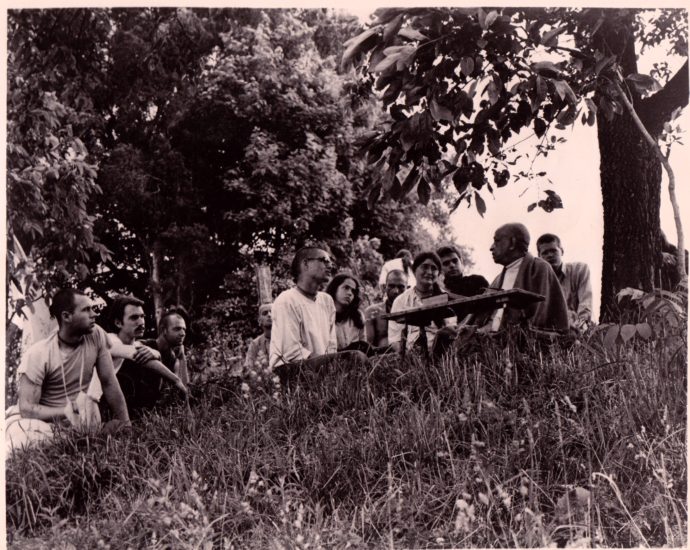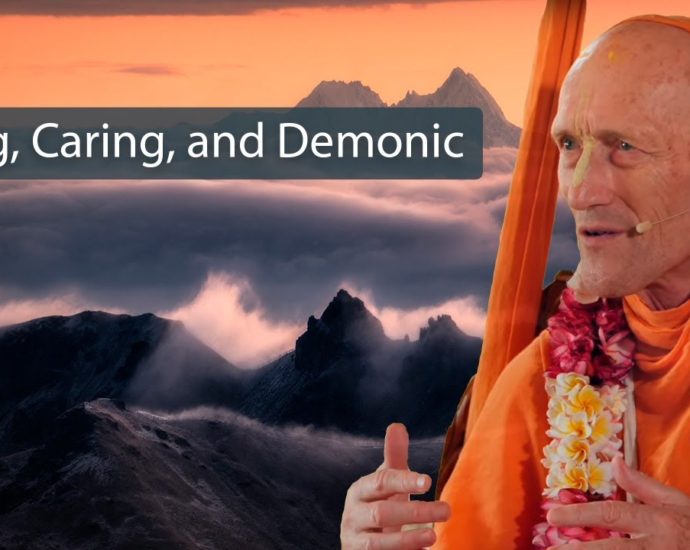So Called Creators of the Modern Materialistic World
A devotee who has fully surrendered to the lotus feet of the Lord knows very well that the creative energy of the living entities, from Lord Brahmā down to the small ant, exists because the living entities are part and parcel of the Lord. In Bhagavad-gītā (15.7) the Lord says, mamaivāṁśo jīva-loke jīva-bhūtaḥ sanātanaḥ: “TheContinue Reading
Nārāyaṇa-Parāyaṇas and Siddhas
muktānām api siddhānāṁ nārāyaṇa-parāyaṇaḥ su-durlabhaḥ praśāntātmā koṭiṣv api mahā-mune O great sage, among many millions who are liberated and perfect in knowledge of liberation, one may be a devotee of Lord Nārāyaṇa, or Kṛṣṇa. Such devotees, who are fully peaceful, are extremely rare. Purport Śrīla Viśvanātha Cakravartī Ṭhākura gives theContinue Reading
The Leader Should have Spiritual Capabilities
As stated in the Īśopaniṣad: īśāvāsyam idaṁ sarvaṁ yat kiñca jagatyāṁ jagat tena tyaktena bhuñjīthā mā gṛdhaḥ kasya svid dhanam “Everything animate or inanimate that is within the universe is controlled and owned by the Lord. One should therefore accept only those things necessary for himself, which are set aside asContinue Reading
Varņāśrama-dharma (the Perfect Institution) Must Be Based On Krsna Consciousness
As a complete social system, Varņāśrama-dharma not only assists in sensual control but also offers a comprehensive solution for modern crises. Whereas today’s civilization induces people to pursue unreal and abnormal aspirations that inevitably end in frustration (if not disaster), varnāśrama- dharma enables both men and women to find fulfillmentContinue Reading
The Age of Darkness & Only One Hope
In this age of darkness where everyone’s mind is agitated with anger-lust & envy, we can rejoice because we are under the shelter of Srila Prabhupada’s causeless mercy. We thought that we know Krsna. We thought that we understand what is love, what is bhakti & what is selfless service. ButContinue Reading
Devotees Need Varņāśrama-dharma
Although devotional service is transcendental, most devotees are not fully on the transcendental stage and therefore require to practice varņāśrama-dharma. Even great acäryas, who for their own sake do not need to follow the worldly rules of varņāśrama-dharma, nevertheless act on the platform of varņāśrama-dharma to educate others. For example,Continue Reading
Learning Determination From A ‘Muslim’ – A Lecture by HH Bhakti Vikasa Swami
Nectar Nectar Nectar !Continue Reading
“Varņāśrama-dharma Is External” Is It?
Śri Caitanya Mahäprabhu’s famous statement that varņāśrama- dharma is external (eho bāhya)[A] should be understood contextually, especially considering that sästra recommends, and Vaisnava acaryas uphold, that aspiring devotees should act according to varņāśrama norms at least until they have attained the perfected stage.”[B] Śrila Prabhupāda explained: Eho bähya. Caitanya MahāprabhuContinue Reading
Śrila Prabhupāda Wanted to Introduce Divine Varņāśrama-dharma
In discussing varnāśrama-dharma, it is most important to clearly distinguish between the original, divine method (dajva. varņāśrama) and its present perverse manifestation as ásura- varņāśrama, the caste system based solely on birth.” Devotees must clearly understand this difference, both to disabuse others and to not themselves re-create a new kindContinue Reading

